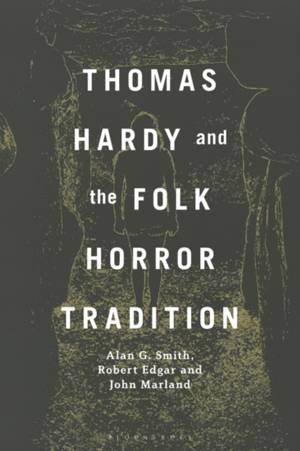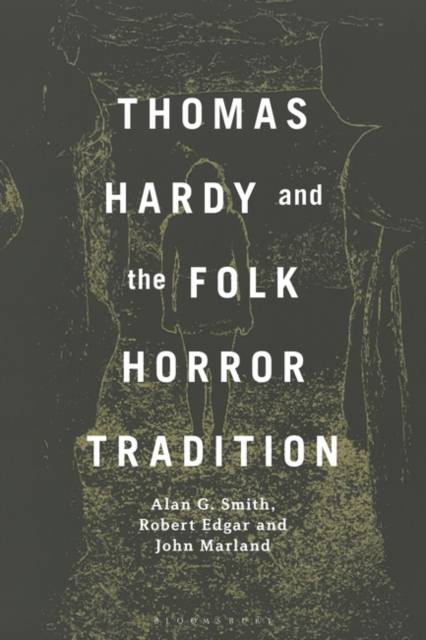
Bedankt voor het vertrouwen het afgelopen jaar! Om jou te bedanken bieden we GRATIS verzending (in België) aan op alles gedurende de hele maand januari.
- Afhalen na 1 uur in een winkel met voorraad
- In januari gratis thuislevering in België
- Ruim aanbod met 7 miljoen producten
Bedankt voor het vertrouwen het afgelopen jaar! Om jou te bedanken bieden we GRATIS verzending (in België) aan op alles gedurende de hele maand januari.
- Afhalen na 1 uur in een winkel met voorraad
- In januari gratis thuislevering in België
- Ruim aanbod met 7 miljoen producten
Zoeken
Thomas Hardy and the Folk Horror Tradition
Alan G Smith, Robert Edgar, John Marland
Hardcover | Engels
€ 169,95
+ 339 punten
Omschrijving
Thomas Hardy and the Folk Horror Tradition takes the uncanny and unsettling fiction of Thomas Hardy as fundamental in examining the lineage of 'Hardyan Folk Horror'. Hardy's novels and his short fiction often delve into a world of folklore and what was, for Hardy the recent past. Hardy's Wessex plays out tensions between the rational and irrational, the pagan and the Christian, the past and the 'enlightened' future. Examining these tensions in Hardy's life and his work provides a foundation for exploring the themes that develop in the latter half of the 20th century and again in the 21st century into a definable genre, folk horror.
This study analyses the subduing function of heritage drama via analysis of adaptations of Hardy's work to this financially lucrative film market. This is a market in which the inclusion of the weird and the eerie does not fit with the construction of a past and their function in creating a nostalgia of a safe and idyllic picture of England's rural past. However, there are some lesser-known adaptations from the 1970s that sit alongside the unholy trinity of folk horror: the adaptation for television of the Wessex Tales. From a consideration of the epistemological fissure that characterize Hardy's world, the book draws parallels between then and now and the manifestation of writing on conceptual borders. Through this comparative analysis, Thomas Hardy and the Folk Horror Traditionposits that we currently exist on a moment of fracture, when tradition sits as a seductive threat.
This study analyses the subduing function of heritage drama via analysis of adaptations of Hardy's work to this financially lucrative film market. This is a market in which the inclusion of the weird and the eerie does not fit with the construction of a past and their function in creating a nostalgia of a safe and idyllic picture of England's rural past. However, there are some lesser-known adaptations from the 1970s that sit alongside the unholy trinity of folk horror: the adaptation for television of the Wessex Tales. From a consideration of the epistemological fissure that characterize Hardy's world, the book draws parallels between then and now and the manifestation of writing on conceptual borders. Through this comparative analysis, Thomas Hardy and the Folk Horror Traditionposits that we currently exist on a moment of fracture, when tradition sits as a seductive threat.
Specificaties
Betrokkenen
- Auteur(s):
- Uitgeverij:
Inhoud
- Aantal bladzijden:
- 192
- Taal:
- Engels
Eigenschappen
- Productcode (EAN):
- 9781501383991
- Verschijningsdatum:
- 1/06/2023
- Uitvoering:
- Hardcover
- Formaat:
- Genaaid
- Afmetingen:
- 152 mm x 229 mm
- Gewicht:
- 421 g

Alleen bij Standaard Boekhandel
+ 339 punten op je klantenkaart van Standaard Boekhandel
Beoordelingen
We publiceren alleen reviews die voldoen aan de voorwaarden voor reviews. Bekijk onze voorwaarden voor reviews.









